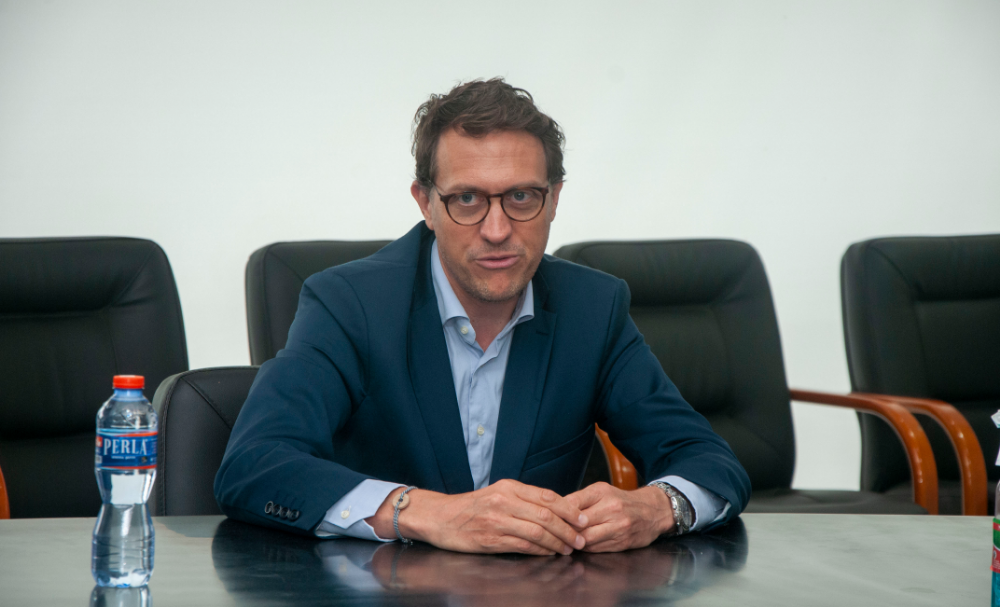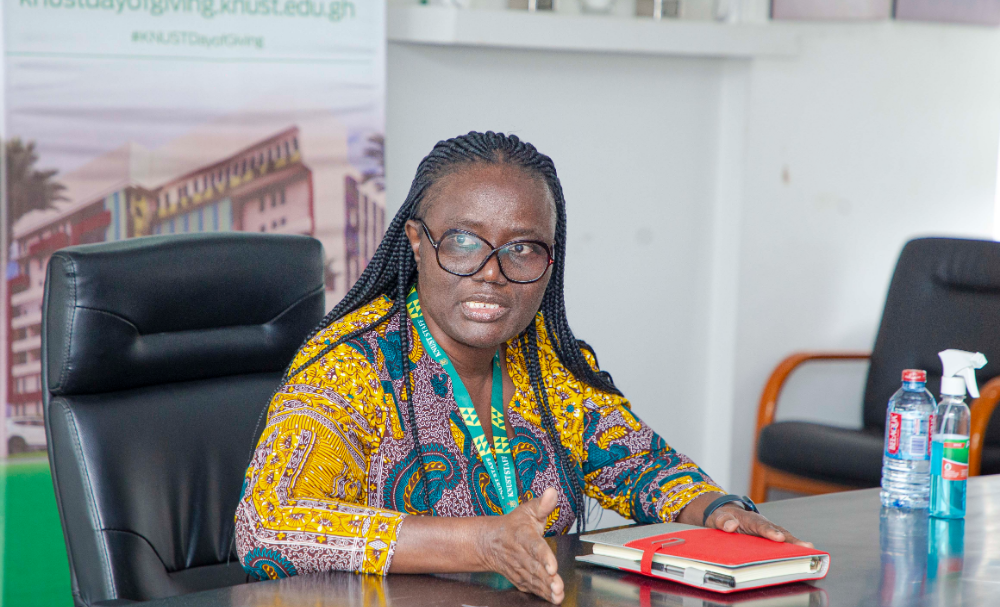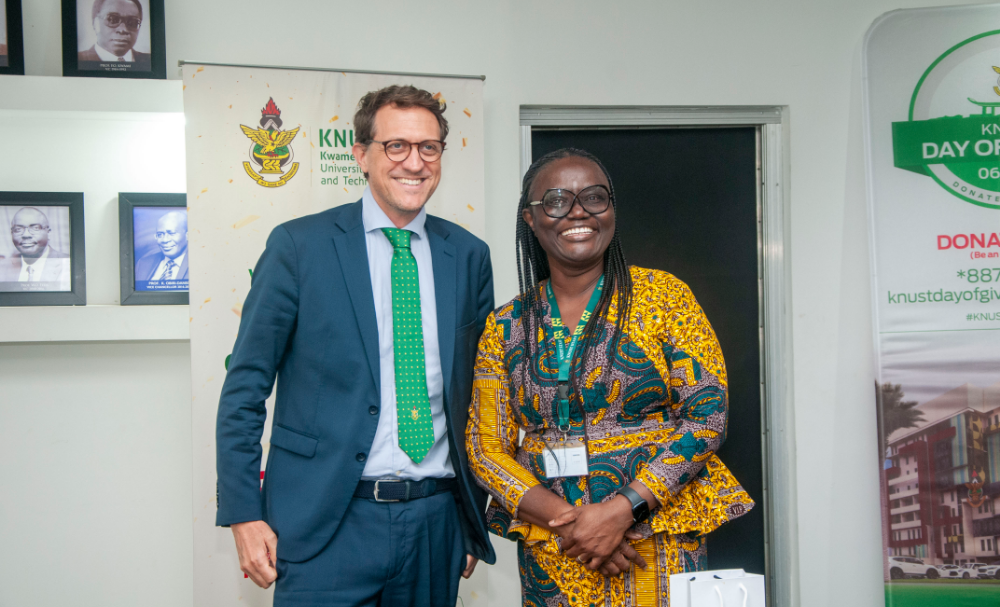Dr. Marcel Moritz of the University of Lille, France, has paid a courtesy call on the Vice-Chancellor of the Kwame Nkrumah University of Science and Technology (KNUST), Kumasi ahead of his scheduled delivery of the 6th Eminent Legal Scholars and Lawyers Public Lecture.
His lecture, themed “The New Challenges of European AI Law: Insights for Africa’s AI Landscape,” will explore the evolving legal frameworks surrounding artificial intelligence in Europe and their relevance to the African context.

During the visit, Dr. Moritz emphasised the importance of developing a communication strategy that effectively bridges legal education and technological advancement, particularly in the field of AI.
Dean of the Faculty of Law, Dr. Chris Adomako, noted that the collaboration with the University of Lille builds on earlier discussions between the two institutions at the intersection of law and information technology.
He revealed that a Memorandum of Understanding (MoU) already exists between KNUST and the University of Lille, providing a foundation for deeper engagement.
Dr. Adomako added that some faculty members had been tasked to explore ways to enhance collaboration and further develop the “Computers and the Law” component of the curriculum to reflect emerging trends in the digital age.

Vice-Chancellor Professor (Mrs.) Rita Akosua Dickson underscored the need for impactful research that responds to the dynamic changes in the global technological landscape.
“If the world is grappling with rapid technological changes, it is the responsibility of tertiary institutions like ours to lead the way,” she said.
She added that higher education must explore the opportunities presented by artificial intelligence while critically assessing the risks, limitations, and societal responsibilities that accompany it.
“Whatever technology we develop, if it does not improve the quality of life for our communities, then we have missed the point,” she cautioned.
Prof. Dickson noted that the upcoming lecture by Prof. Moritz is timely, as it will offer valuable insights into how AI is being approached in Europe, with relevance for Ghana and Africa at large.
“We must ask ourselves, what challenges are emerging in the technological and legal space globally, especially in the European context, so we can chart our own path wisely,” she said.

















